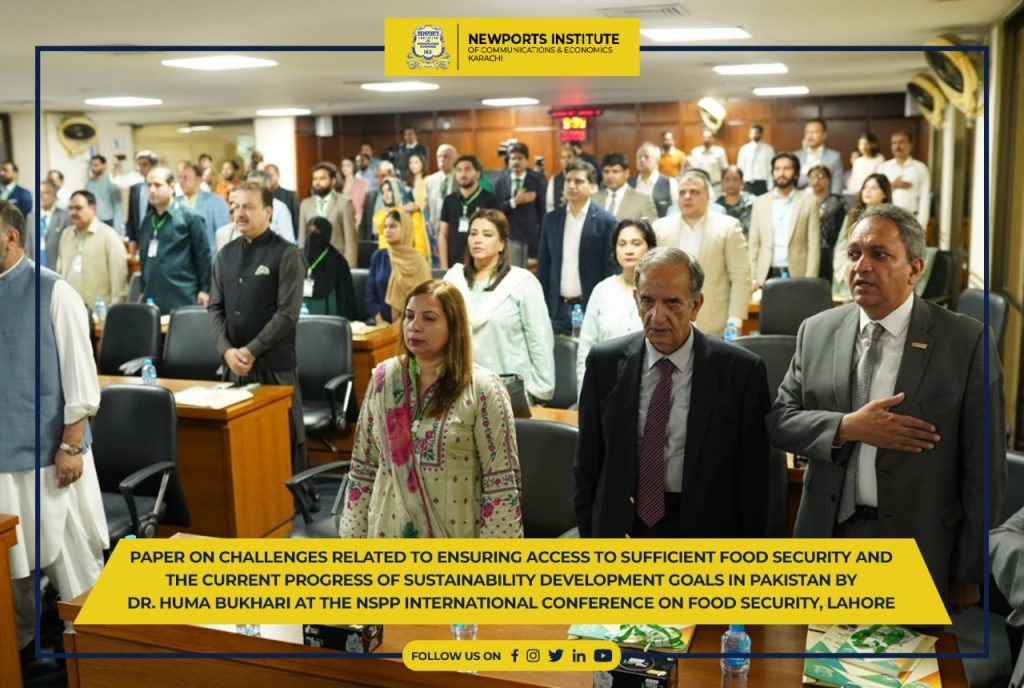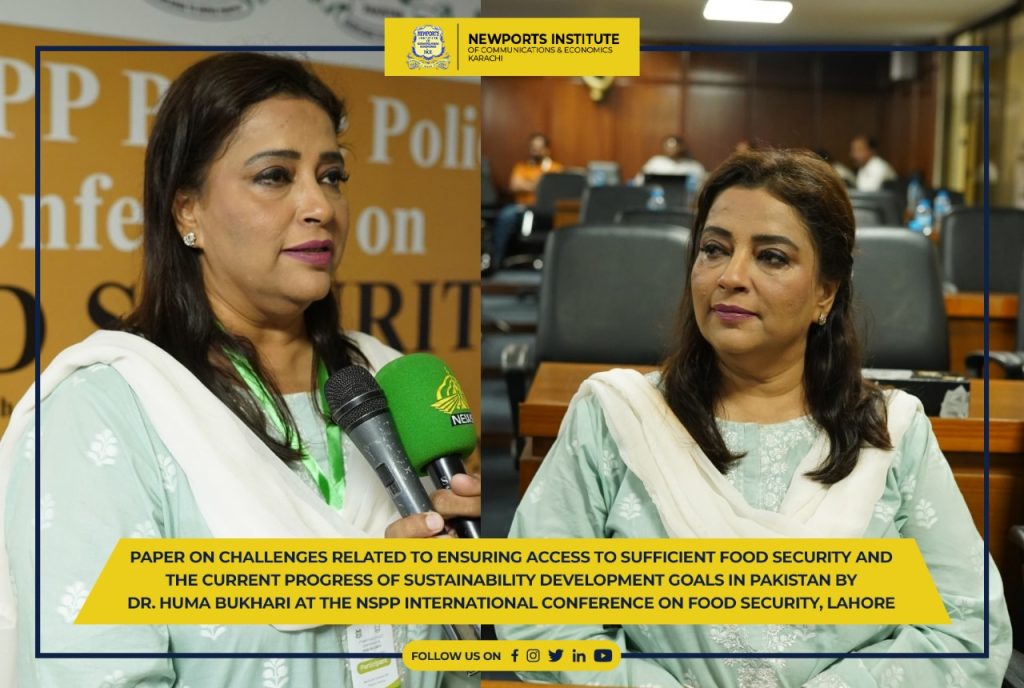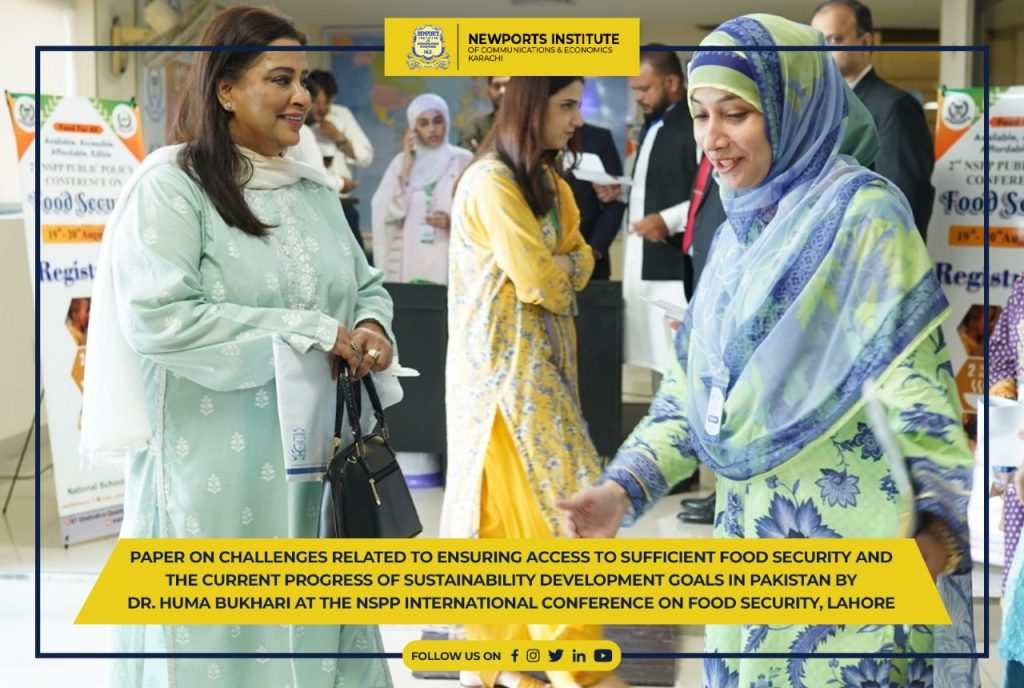

Dr. Huma Bukhari presenting her paper on ‘Challenges in Ensuring Food Security and Achieving SDGs in Pakistan’ at the NSPP International Conference on Food Security
Presenter: Dr. Huma Bukhari, Rector, Newports Institute of Communications & Economics
Event: NSPP International Conference on Food Security, Lahore
Topic: Challenges related to Ensuring Access to Sufficient Food Security and the Current Progress of Sustainable Development Goals (SDGs) in Pakistan
At the NSPP International Conference on Food Security in Lahore, Dr. Huma Bukhari presented a critical analysis focusing on the multifaceted challenges Pakistan faces in ensuring food security and the progress toward achieving the Sustainable Development Goals (SDGs), particularly SDG2 (Zero Hunger) and SDG13 (Climate Action).

Key Points:
Agricultural and Environmental Challenges: Pakistan’s journey towards food security is impeded by water scarcity, land degradation, and the far-reaching effects of climate change. These issues not only threaten agricultural productivity but also hinder the country’s ability to achieve SDG2, which targets ending hunger.
Climate-Resilient Strategies: The introduction of climate-resilient crop varieties, improved water management systems, and investments in renewable energy are critical strategies currently being employed to address these challenges and align with SDG13.
Socio-Economic Inequalities: Marginalized groups, including smallholder farmers, women, and economically disadvantaged communities, face disproportionate difficulties in accessing food and resources, exacerbating food insecurity. Addressing these inequalities is essential for making meaningful progress towards SDG10 (Reduced Inequality).
Policy Recommendations: Dr. Bukhari emphasized the importance of collaboration among government bodies, corporations, and other stakeholders. Implementing inclusive policies that foster economic growth, social protection, and gender equality is crucial for overcoming these food security challenges.
STI and Sustainability: The presentation also highlighted the integration of Sustainability, Science, Technology, and Innovation (STI) within the framework of the SDGs. Dr. Bukhari proposed a NASTIC framework for systematically addressing Pakistan’s unique challenges, ensuring that advancements in STI contribute to environmental protection, social well-being, and economic prosperity.
Conclusion:
Dr. Huma Bukhari concluded that while Pakistan faces significant hurdles in achieving food security and sustainability, ongoing efforts and strategic reforms offer hope. A sustained commitment to these measures is essential for building a future where Pakistan can ensure both food security and environmental sustainability.
